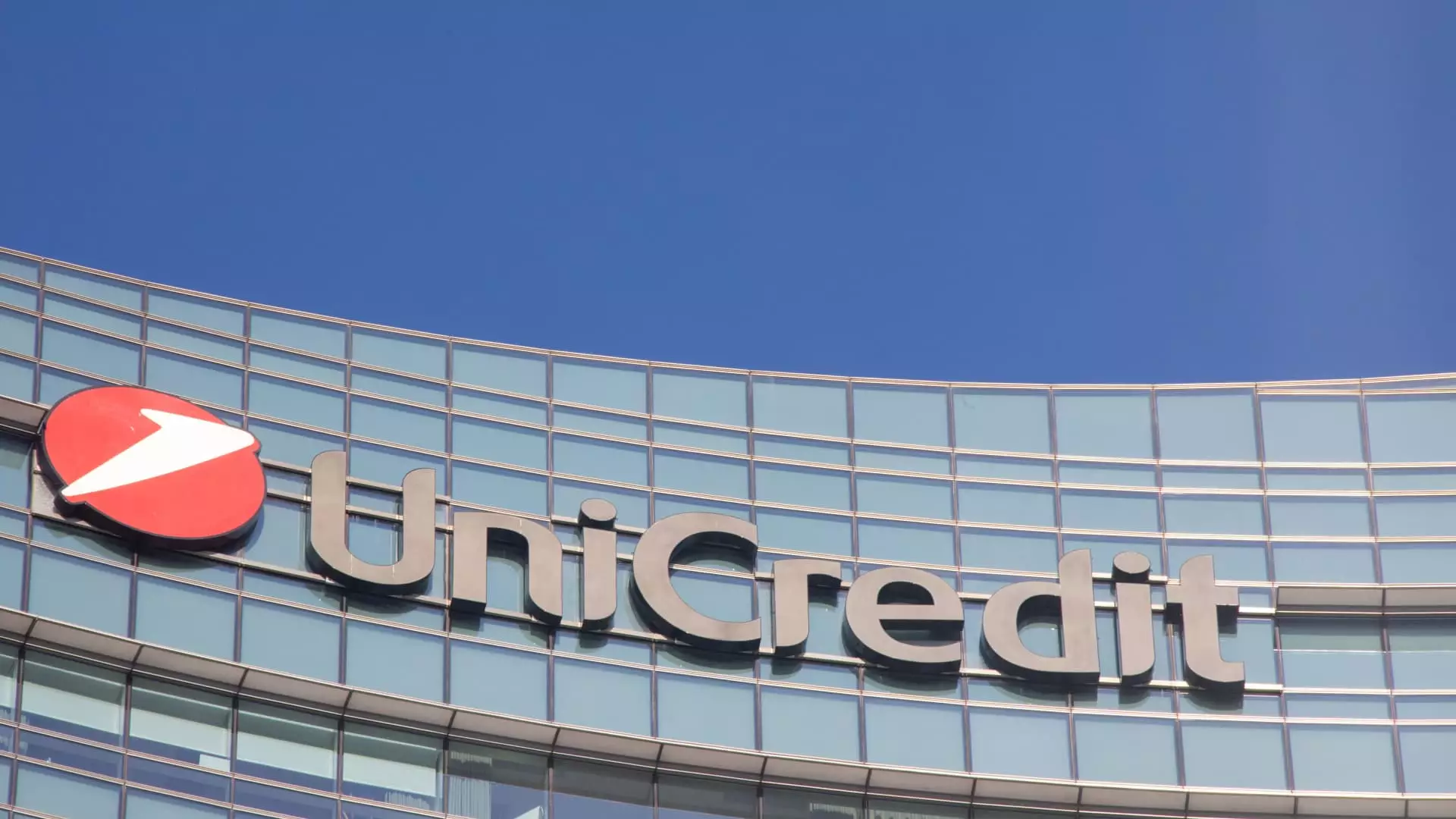The Italian banking landscape is witnessing a significant transformation as UniCredit, one of the nation’s largest lenders, unveils an ambitious bid to acquire Banco BPM. With an offer valuing the merger at around 10 billion euros, this proposal represents a strategic maneuver that aims not only to consolidate the domestic banking sector but also to affirm UniCredit’s expanding influence across Europe. This article delves into the intricacies of the proposed merger and its broader implications for Italy’s financial ecosystem.
On a recent Monday, UniCredit disclosed its intent to acquire Banco BPM, presenting an all-stock offer of 6.657 euros per share—slightly above Banco BPM’s Friday closing price of 6.644 euros. The proposed acquisition is intended to bolster UniCredit’s position as a prominent pan-European banking entity. However, the early response in the market reflected a mixed sentiment; while Banco BPM’s shares surged by 5%, UniCredit’s stock faced a decline of 1.7%. This juxtaposition raises questions about investor confidence and market perceptions surrounding the complexities of such mergers.
The plan to amalgamate these two financial giants underscores the ongoing trend in the European banking sector, characterized by an increasing number of mergers and acquisitions aimed at enhancing operational efficiencies and market share. In a landscape considered ripe for consolidation, UniCredit’s move signals its readiness to lead this transformation. Analysts have speculated that as cash-rich financial institutions like UniCredit seek to expand, they may increasingly pursue strategic partnerships to solidify their positions in a competitive market.
Interestingly, UniCredit’s pursuit of Banco BPM occurs concurrently with its increased stake in German lender Commerzbank. Having raised its holdings to approximately 21%, with aspirations to elevate this to 29.9%, UniCredit is not only focusing on domestic expansion but also casting its net into the larger European banking landscape. However, German Chancellor Olaf Scholz’s remarks cautioning against “unfriendly attacks” on financial institutions highlight diplomatic complexities in such transnational endeavors. This nuance reflects the regulatory hurdles that accompany cross-border acquisitions and could significantly affect the outcomes of either transaction.
The juxtaposition of pursuing both Banco BPM and Commerzbank could potentially overwhelm UniCredit. Analysts, like Kian Abouhossein from JP Morgan, suggest that managing both ventures simultaneously may present unrealistic challenges in terms of regulatory approval and operational integration. This concern is compounded by the existing tensions between German authorities and UniCredit’s ambitions, which may jeopardize the feasibility of nurturing two high-profile acquisitions at once.
Meanwhile, Banco BPM is navigating its own strategic developments; it recently made moves to acquire asset manager Anima for roughly 1.6 billion euros and has secured a 5% stake in Monte dei Paschi di Siena. Such actions reflect Banco BPM’s proactive stance in strengthening its market position, potentially making it a more attractive target for acquisition. Nonetheless, how these investments will impact the bank’s operations and market valuation during the merger talks remains to be seen.
With UniCredit reporting an increase in its quarterly net profit by 8% year-on-year to 2.5 billion euros, surpassing analysts’ expectations, the financial health of the Italian lender appears robust. This backdrop provides a motivating factor for UniCredit to pursue aggressive expansion strategies. However, the year-on-year profit projections, recently elevated to above 9 billion euros, also highlight the necessity for careful strategic execution to maintain investor confidence amid this speculative environment.
As UniCredit positions itself for what could be a revolutionary period for the Italian banking sector, the implications of merging with Banco BPM extend beyond mere financial metrics. This potential consolidation could reshape the competitive landscape, influencing everything from product offerings to customer service. With the intricacies involving regulatory challenges and integration risks, the road ahead will require careful navigation by UniCredit’s management. The outcome of these endeavors will undoubtedly be closely monitored by investors, analysts, and competitors alike as they mark a new chapter in the evolution of banking in Italy and Europe as a whole.

